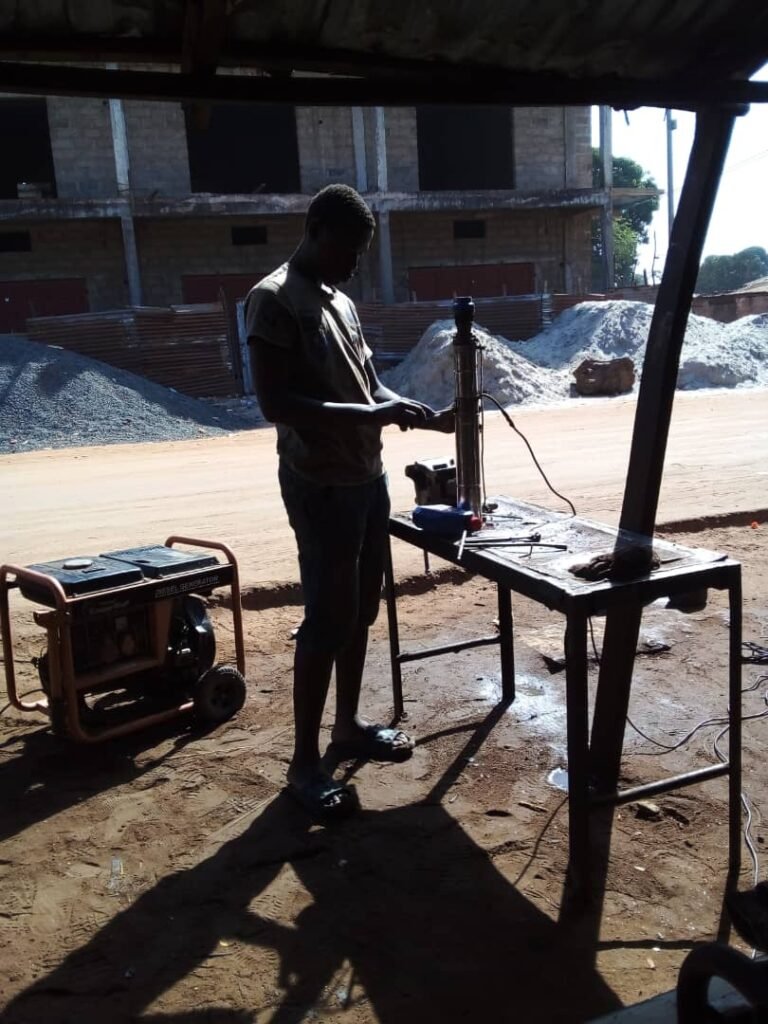
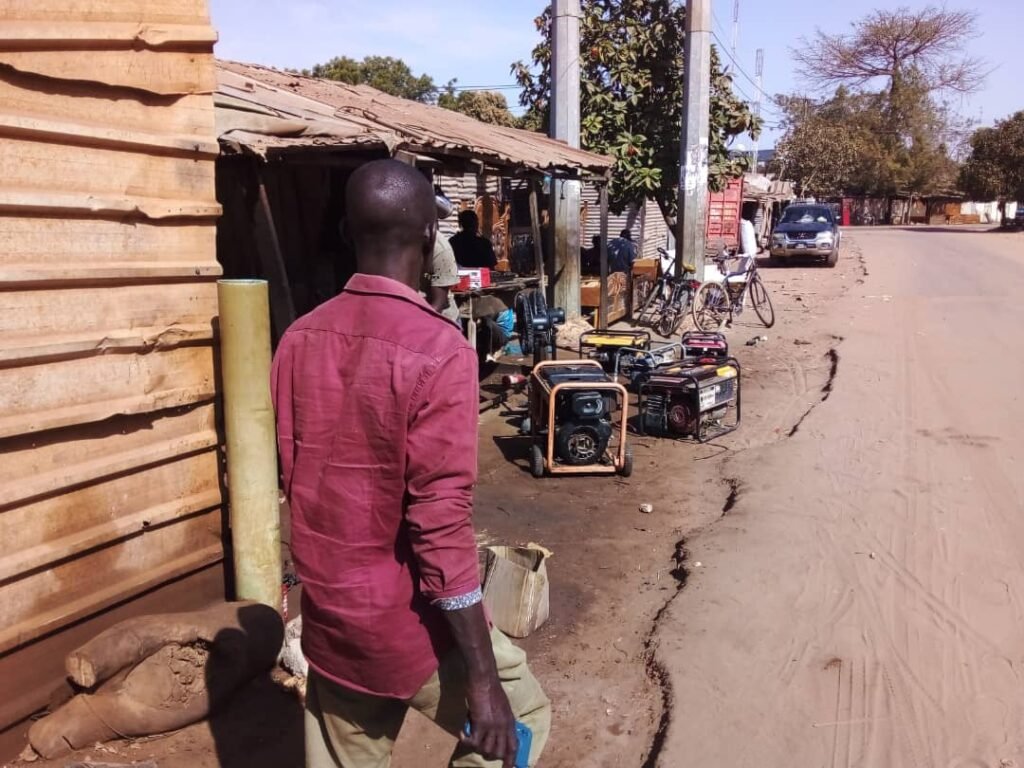
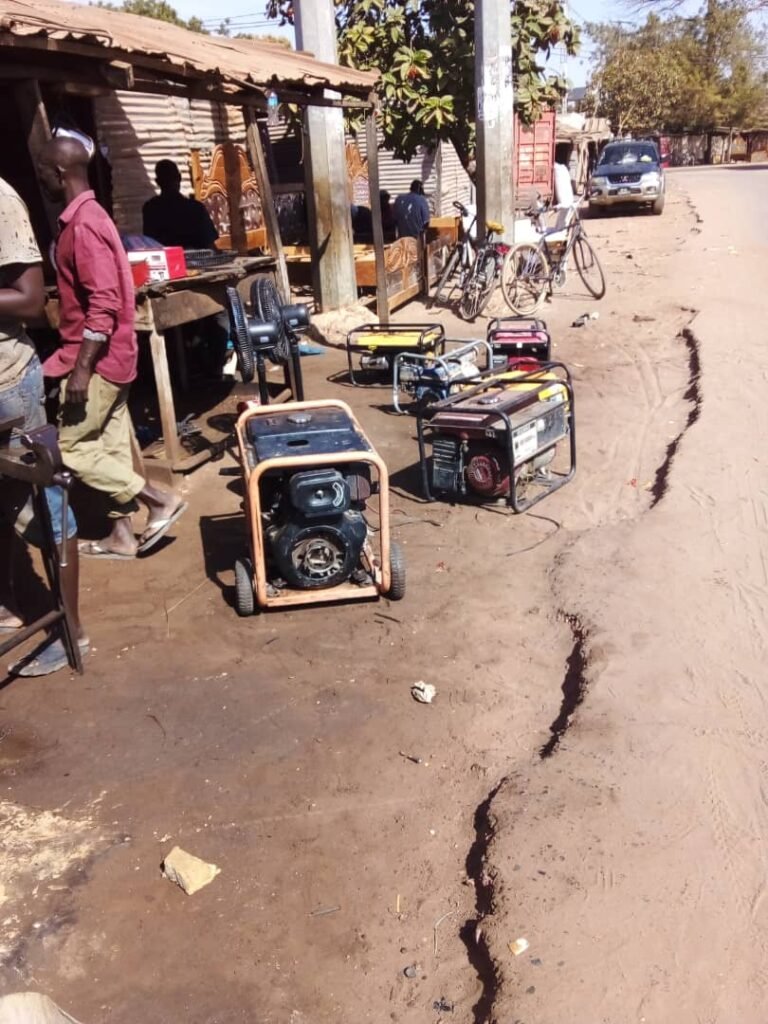
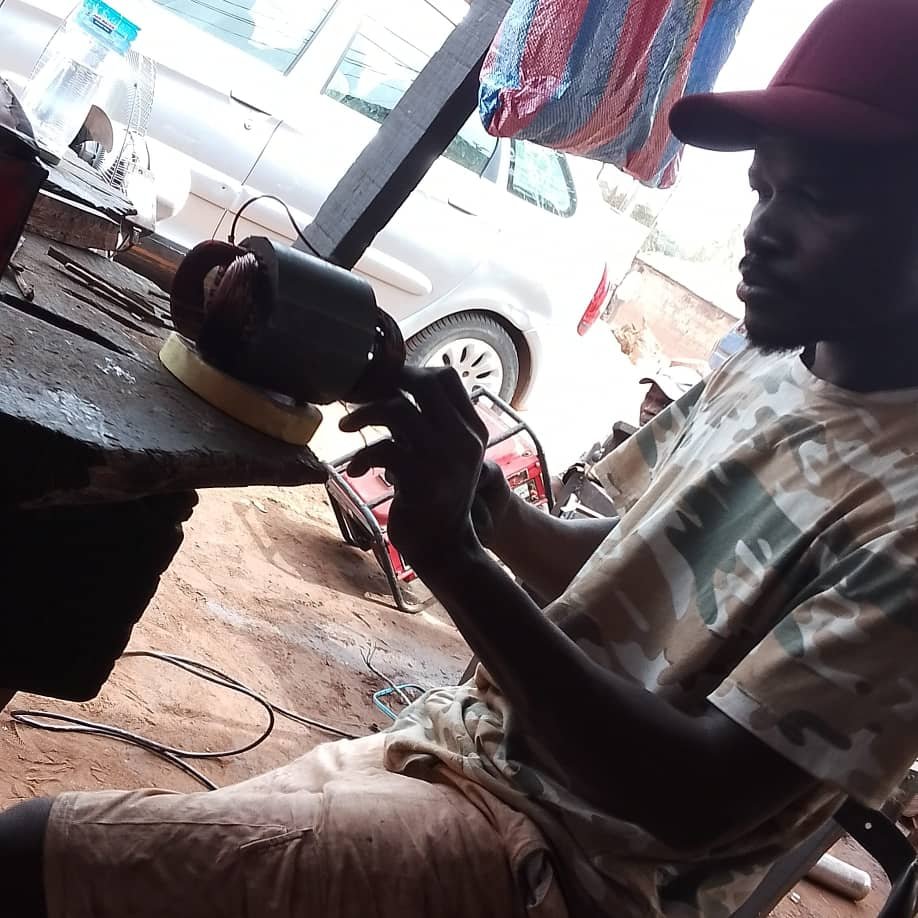
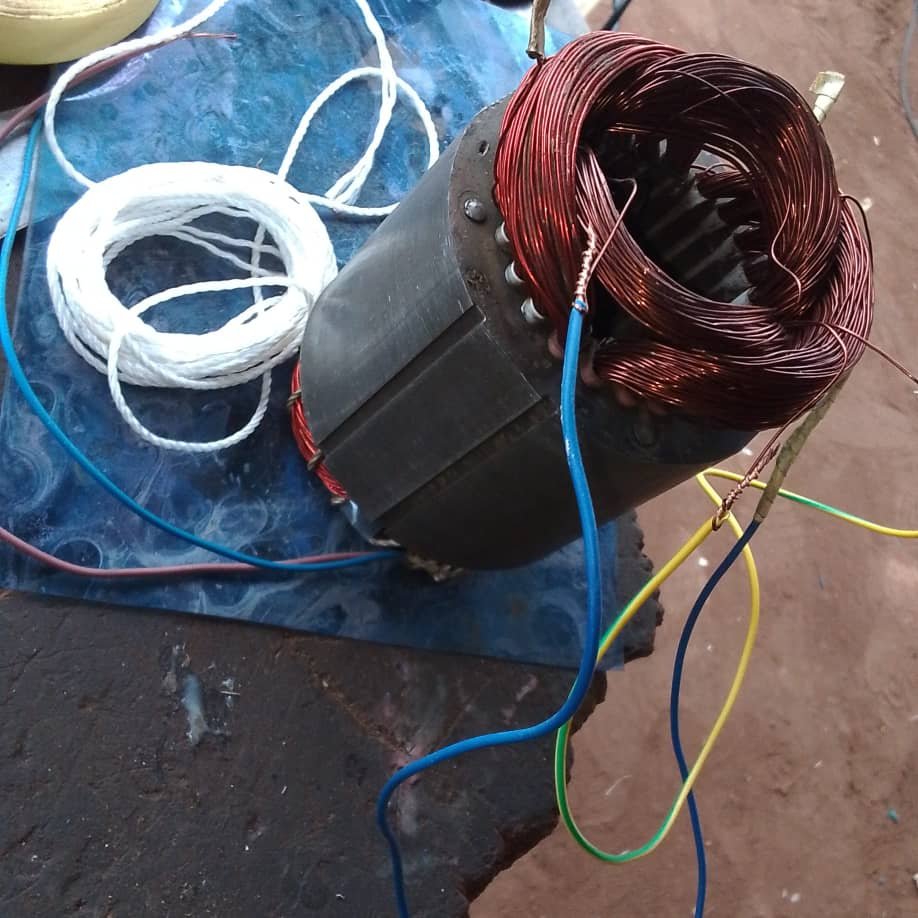
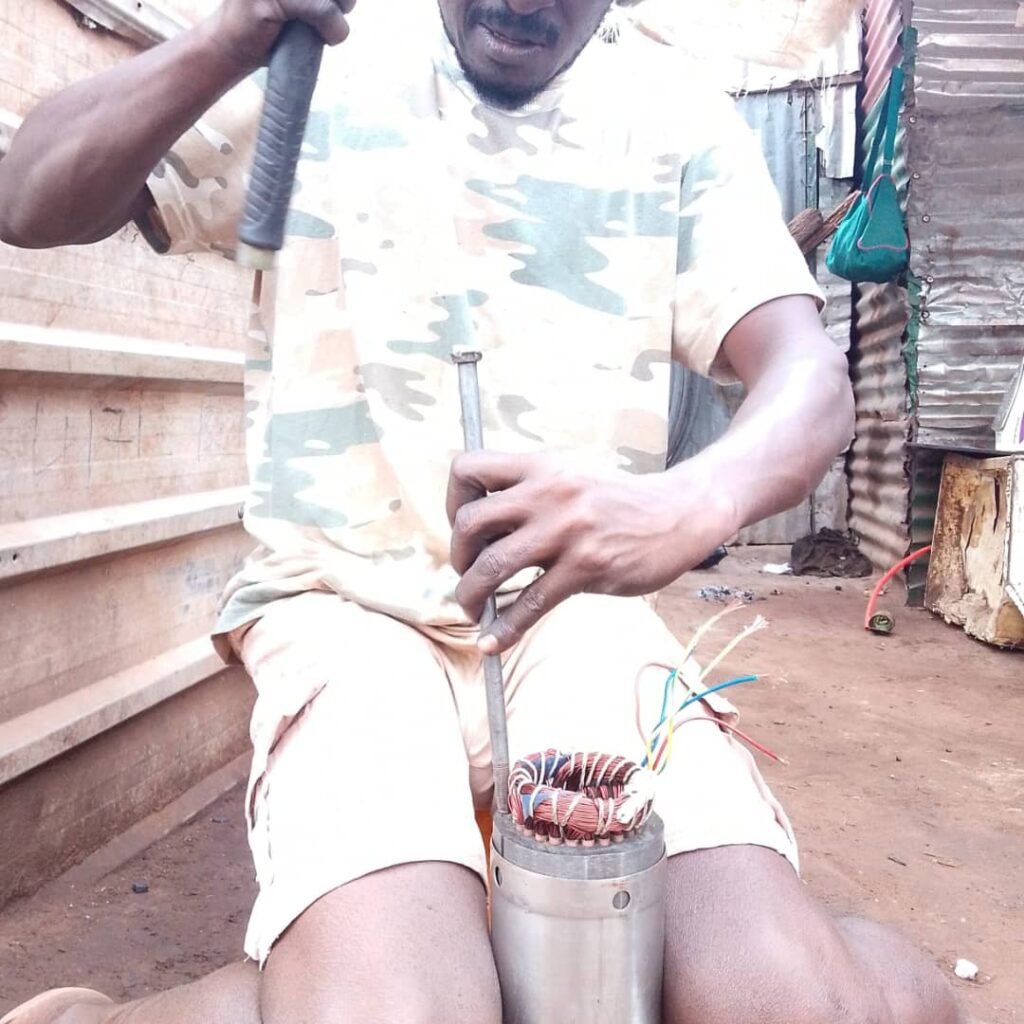
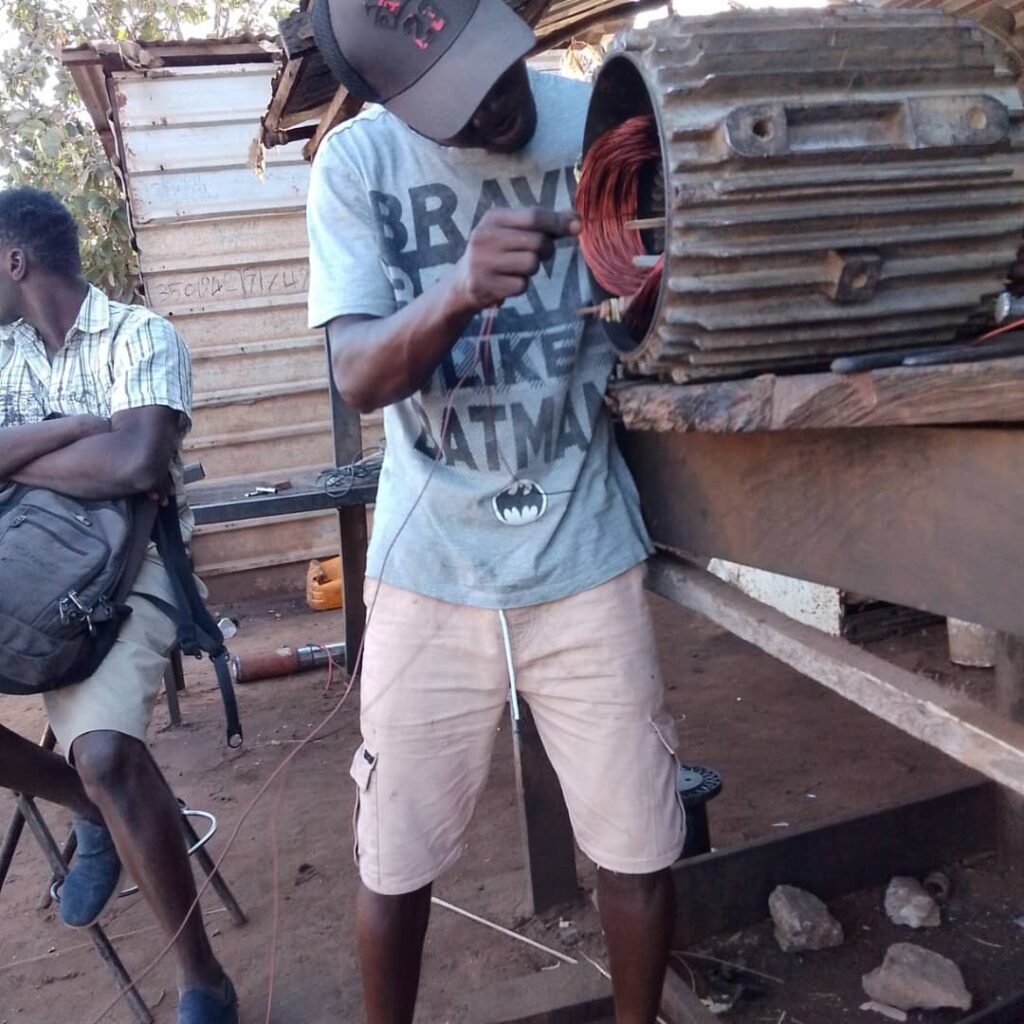
Potential Electrical/Mechanical Repair Instructor & Workshop Gallery (Work in Progress)
Introduction
As part of our ongoing effort to expand vocational training opportunities, we are exploring new fields such as electrical and mechanical repair for generators, motors, and submersible pumps. We are pleased to share photos of a workshop environment in The Gambia, where a potential instructor is shown demonstrating various repair techniques. Although we do not yet have an official vocational teacher in place, these images underscore the practical, hands-on skills that are in demand and can be taught in future programs.
Workshop Gallery
Below is a collection of images showcasing typical repair tasks and the workshop setting.
- Generator and Pump Repair
- In these photos, you’ll see generators of different sizes lined up for service.
- A submersible pump is being inspected and rewired—a process that requires technical expertise in electrical systems.
- Electrical Motor Rewinding
- Several images highlight the detailed process of rewinding copper coils inside an electric motor.
- This skill set is crucial for extending the lifespan of motors used in pumps, generators, and other machinery.
- Hands-On Troubleshooting
- The individuals in the photos are diagnosing equipment malfunctions, soldering connections, and testing components.
- These real-world tasks demonstrate the type of training we aim to offer once an instructor is secured.
- Informal Workshop Setup
- The workshop is located alongside a roadway, illustrating how accessible and community-centered these repair services can be.
- Generators, parts, and tools are organized around the workspace for quick repairs and customer service.
Potential Instructor Spotlight
- Skilled Local Expert: The person pictured demonstrates a range of techniques, from dismantling and inspecting equipment to carefully rewinding coils, suggesting valuable knowledge that could be passed on to students.
- Practical & Accessible Teaching Style: Working in an open-air environment ensures that these methods can be taught in everyday conditions, preparing learners for similar setups across the country.
- Future Opportunities: We hope to formalize a partnership with this individual (and/or other skilled craftspeople) to create a structured curriculum, safety guidelines, and certification standards for vocational training in The Gambia.
Why This Matters
- Empowering Youth and Adults: By learning practical repair skills, more individuals can enter the workforce, start their own businesses, or improve existing ones.
- Local Economic Development: Keeping generators and pumps operational strengthens small enterprises, especially in communities reliant on consistent power or water supplies.
- Capacity Building: Developing local expertise reduces the need to outsource repairs, saving resources and reinforcing The Gambia’s self-sufficiency.
Next Steps
- Curriculum Development: We’re working on assembling lesson plans, tool kits, and safety protocols suitable for beginner, intermediate, and advanced learners.
- Workshop Upgrades: Over time, we aim to set up an improved learning environment with reliable electricity, storage areas for tools, and demonstration stations.
- Securing a Qualified Teacher: Finding a dedicated instructor or multiple trainers with recognized experience in electrical/mechanical repair remains our top priority.
Conclusion
These images offer a glimpse into a promising skill set—electrical and mechanical repairs for generators, motors, and pumps—that we hope to formalize as a vocational training program in The Gambia. With your support and ongoing collaboration, we can turn this potential into a fully developed initiative that provides hands-on learning, uplifts local communities, and creates sustainable livelihoods.
(This page is a work in progress. We welcome suggestions, sponsorship inquiries, and collaborative proposals to help establish an official vocational teacher and training program.)
